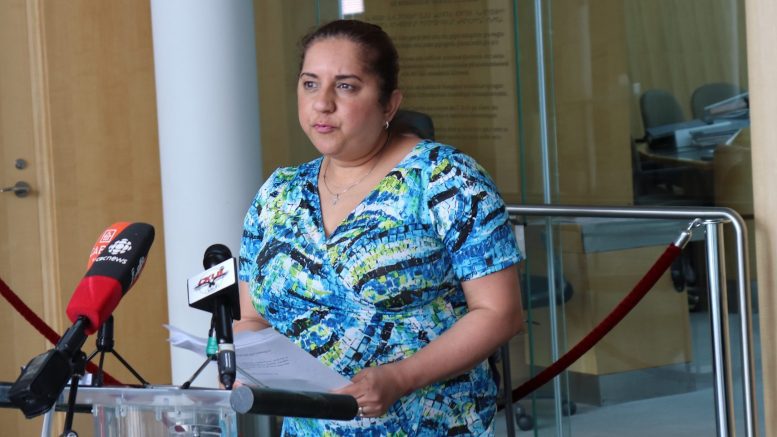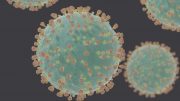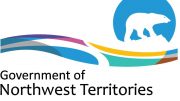Dr. Kami Kandola, chief public health officer, has confirmed there are now eight active cases of COVID-19 and 12 probable cases related to an outbreak at N.J. Macpherson School in Yellowknife.
“We are on the brink of community spread,” Kandola told reporters in a press conference on Monday.
“When we declared an outbreak at N.J., pretty much in all the grades there are cases.”
Of all the cases “the vast majority of them” are children, according to Kandola.
Kandola said an investigation is ongoing so she could not confirm any link between the previously announced cluster of positive COVID-19 cases in Yellowknife, but did say these cases were not related to a previous shutdown at St. Patrick school.
She did say, however, that four of the five previously announced cases have fully recovered.
An outbreak was declared at N.J. Macpherson School on May 1, and all students and staff who were at the school between April 26 to 30 are now considered close contacts and all household members must isolate.
Public health ordered the closure of all Yellowknife, Dettah and Ndilǫ schools and extracurricular activities on May 2.
Premier Caroline Cochrane said schools have been closed “out of an abundance of caution.”
“It was a decision meant to ensure spread was contained and not to take any unnecessary risk that would jeopardize the health of residents.”
The premier said only those who have been contacted by the Office of the Chief Public Health Officer (OCPHO) or are showing symptoms should arrange to get tested.
Health Minister Julie Green said that if there are any parents or contacts that are currently isolating due to the current outbreak and need financial support can apply to the federal Canadian Recovery Benefit.
Updates to health orders
Kandola also reiterated that masks are now mandatory in indoor public spaces and all non-essential travel is discouraged.
Since health orders were published on the weekend, however, Kandola’s office has changed protocols around isolating contacts who are essential workers.
On May 1, the OCPHO said in a press release that fully vaccinated members of an isolating household could go to work as long as no member of the household showed symptoms.
Today, Kandola clarified that only essential workers who are fully vaccinated may be allowed to go to work but must apply with Protect NWT to get permission to go to work. Those who are not fully vaccinated must also apply to Protect NWT to have their situation assessed, said Kandola.
Vaccine exchange
The GNWT will soon be entering into an agreement with British Columbia to exchange vaccines so the NWT can acquire the Pfizer vaccine.
“The Pfizer vaccine is currently approved for those 16 years of age and older, and is expected to expand to those aged 12 to 15 years old in the near future allowing for greater vaccine coverage,” said Green.
She said this will allow for a flexible and sustainable vaccine roll-out program.
While many details were not immediately available and will be made available soon, Dr. AnnMarie Pegg, territorial medical director, said the GNWT will be looking to expand vaccine roll out to those teenagers “in the coming weeks.”
Kandola said that now there is not one exact percentage for herd immunity, but having teens vaccinated will improve risks around outbreaks and spread.
Although Pfizer has not been cleared for people younger than 16 yet, there are 3,600 students aged 12 to 17 that the government will be looking to vaccinate.
As of Monday, 68 per cent of residents in Yellowknife who are eligible for the vaccine have received one dose and 52 per cent have received both doses.
Kandola said the majority of the unvaccinated residents are school-aged.









